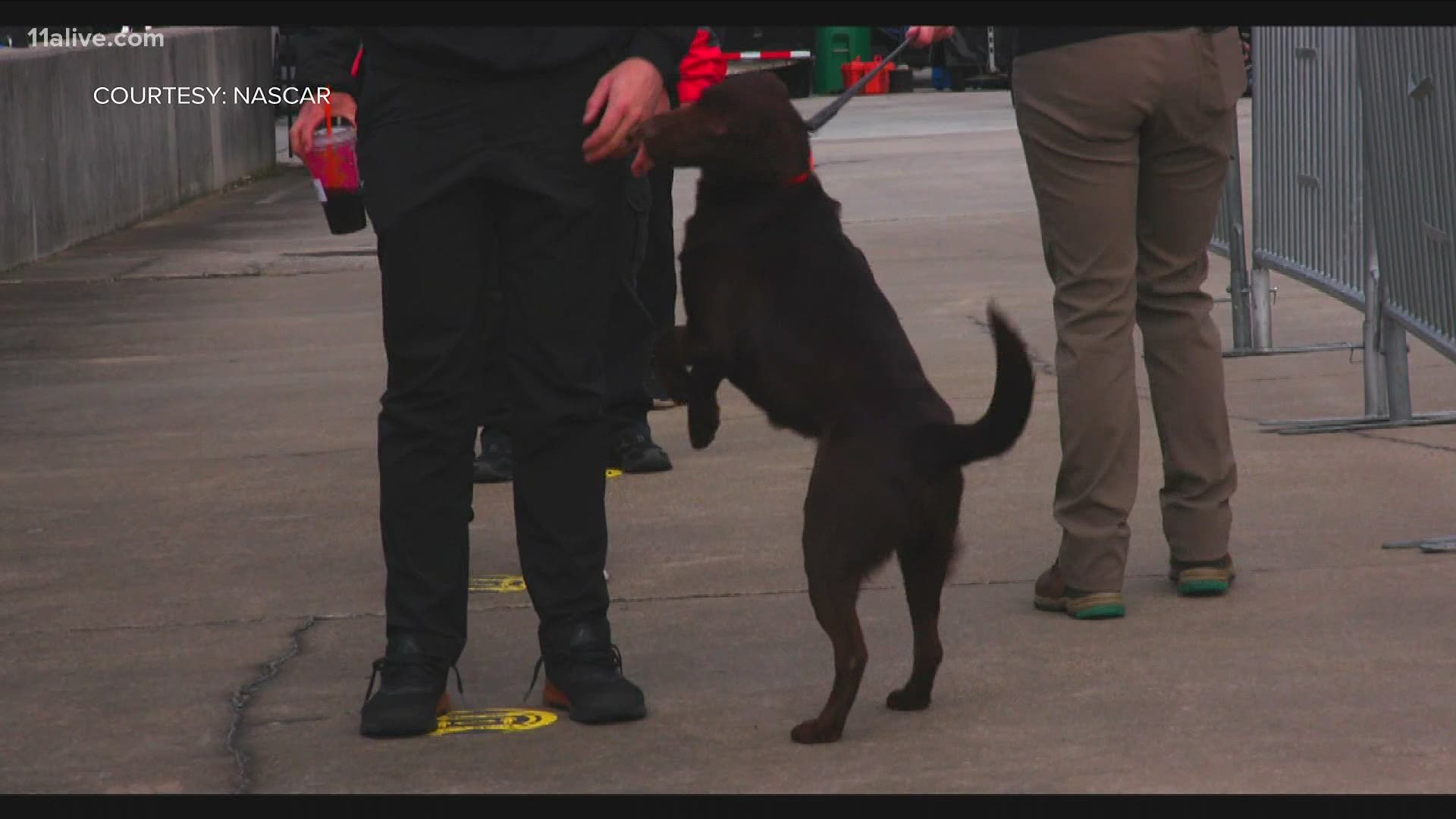Thailand has started deploying a canine virus-detecting squad in hopes of quickly identifying people with COVID-19 as the country faces a surge in cases, with clusters at construction sites, crowded slum communities and large markets, the Associated Press reported Saturday.
And for months now, in various programs and studies in a list of locations around the globe, researchers have been making the idea of COVID-19 detection dogs more of a real solution in the fight against the virus.
In one recent UK study, British scientist said they've also found that dogs they've trained can detect a "corona odor," as Reuters reported on Monday.
A professor involved with the British study, Steve Lindsay of Durham University's department of biosciences, said "dogs could be a great way to screen a large number of people quickly and prevent COVID-19 from being re-introduced into the UK."
Canine participants in the study were praised for their accuracy and speed.
In the study in Thailand, Angel, Bobby and Bravo are among six Labrador retrievers that have been trained by researchers at the Faculty of Veterinary Science at Bangkok's Chulalongkorn University to sniff out a unique odor that people with COVID-19 produce in their sweat, the researchers say, the Associated Press reported.
Since May 10, the three have tested more than 1,000 samples from college staff, students and people outside the university.
The results so far are impressive with a success rate of nearly 95%.
After a few seconds of sniffing sweat samples placed in metal containers, the dogs can tell which people have COVID-19. If there's no trace of infection, the dog will walk pass the sample. If it is positive, it will sit in front of it.
Prof. Kaywalee Chatdarong, head of the research team, said she was aware that other countries have been using dogs to identify the coronavirus, including Finland, the United Arab Emirates, Germany and India, but that she had no idea if it would work in Thailand because of the country's spicy and flavorful cuisine.
Suwanna Thanaboonsombat, a volunteer who collects samples to bring to the lab, said the canine testers add a big element of convenience because they can check samples from people who can't go out to be tested.
"People can simply put cotton balls underneath their armpits to collect sweat samples and send them to the lab. And the result is quite accurate," Suwanna said.
The researchers plan to send the canine team out to communities suspected of being new COVID-19 hotspots. The dogs will work inside a mobile unit, while the collecting team can comb through the community collecting samples.
According to the U.S. Centers for Disease Control and Prevention, dogs are among a small number of pets that can become infected with the coronavirus, mostly after close contact with people with COVID-19. It says the risk of animals spreading the virus to people is considered low.
At professional sporting events, like for those with the Miami Heat in Florida, reports that COVID-19 sniffer dogs will be used to try and detect the virus in fans coming back to events have surfaced. As WTSP reported in January, the team said they would use dogs after a July 2020 study showing that the dogs could be at least 83 percent effective in sniffing out the coronavirus.
And also in January, WTSP reported that Florida International University's International Forensic Research Institute would train dogs to detect COVID-19, to be used on their campus and at Florida's state capitol.
The Helsinki Airport in Finland announced that it had deployed dogs to detect COVID-19, according to a 2020 report by WTSP.
The Thai researchers said that as a safety precaution, they designed the sample containers so that the dogs' noses do not contact the samples. They also believe the receptors on cells in dogs' respiratory tracts are not a welcoming environment for the coronavirus to attack.
Kaywalee said that while dogs can provide a fast and cheap testing alternative, they do have limitations.
"5 p.m. is their dinner time. When it's around 4:50, they will start to be distracted. So, you can't really have them work anymore. And we can't have them working after dinner either because they need a nap. They are living animals and we do have to take their needs and emotions into consideration," she said.
"But for me, they are heroes and heroines."
As mentioned in a report from WTIC, the UK study used a group of six Labradors and Cocker Spaniels, which were given odor samples by people infected with the virus, and some from people were were not.
Lindsay said, "the basic idea is that we can screen travelers innocently coming into this country who may be carrying COVID-19, detect those people and isolate them from the rest of the community."
While studies have shown that dogs can detect COVID-19, even in asymptomatic people, as KVUE reported, the studies have used small pool samples and each study has had its limits. More research is still needed.
The Associated Press contributed to this report.

